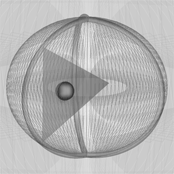



































relational inquiry regarding meaning » intelligibility » subjectivity
• embodied cognition
• exploratory attention-as-experience, functioning to expand our capacity for knowing—see Nixon essay and McGilchrist video
• Jung: importance of symbolic/metaphoric language—see Edinger (1972) Ego and archetype: Individuation and the religious function of the psyche [Shambhala 1992] (beginning at pg. 107)
• McGilchrist's account of what the right hemisphere of our brain does, from (2009) The Master and His Emissary:
• allows "an open, receptive, widely diffused alertness to whatever exists" (25)
• "underwrites breadth and flexibility of attention... [and] sees things whole, and in their context" (27)
• attends to "the live, complex, embodied, world of individual, always unique beings, forever in flux, a net of interdependencies, forming and reforming wholes, a world in which we are deeply connected" (31)
• "more capable of a frame shift ...especially important for flexibility of thought" (40)
• synthesizes "in consciousness different elements, including information from the ears, eyes, and other sensory organs, and from memory, so as to generate the richly complex, but coherent, world we experience" (42)
• "has dominance for exploratory attentional movements" (44)
• "sees each thing in its context, as standing in a qualifying relationship with all that surrounds it" (49)
• is "concerned with the relations between things" (50)
• "presents individual, unique instances of things and individual, familiar, objects" (51)
• "plays an important role in ...a capacity to put oneself in another's position and see what is going on in that person's mind" (57)—empathy
• exhibits "the preponderance of emotional understanding" (58)
• connects us "to the self as embodied" (66)
• and so on.
• Nietzsche: the Dionysian primordial oneness (contrasted with the P-node's Apollonian); perspectivism
• perspectival knowing
• qualia, what-it's-like-ness, acquaintance-knowledge
_key text
• McGilchrist, I. (2009) The master and his emissary: The divided brain and the making of the Western world [Yale UP] (see quotes above)
_additional texts
• Code, L. (1991) What can she know? Feminist theory and the construction of knowledge [Cornell UP]
• Jackson, F. (1982) Epiphenomenal qualia [The Philosophical Quarterly 32(127), 127-136]
• Kierkegaard, S. (1846) The subjective truth, inwardness; Truth is subjectivity. In Concluding unscientific postcript [A. Hannay, trans. Cambridge UP 2009]
• Nagel, T. (1974) What is it like to be a bat? [The Philosophical Review 83(4), 435-450]
• Vervaeke, J. (2019 talk at Stoicon-X Toronto) "The View from Above: A Transformation of Perspectival and Participatory Knowing" (video here)
